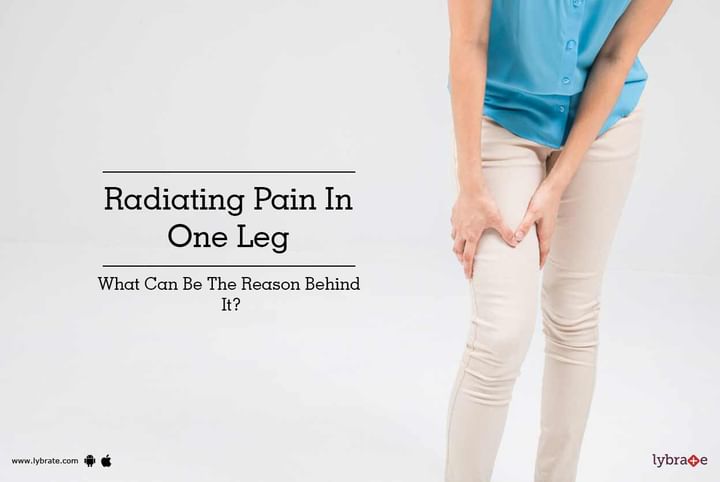Radiating Pain In One Leg - What Can Be The Reason Behind It?
In recent times, there has been an upsurge in the instances of leg pain. People from all age groups, irrespective of their gender, are being affected. Needless to say, this painful and uncomfortable condition throws life in jeopardy and adversely affects and interfers with a person's daily activities. While the pain can be in both the legs, many people also suffer from severe radiating pain in one leg.
What causes radiating pain in one leg?
More than often, this kind of pain is triggered by nerve problem or disorder. If you experience a shooting pain that originates in the lower back and gradually radiates down to one of the legs (from the buttocks to the back of the leg), chances are you are experiencing sciatica.
In sciatica, the nerve affected is the sciatic nerve. The sciatic nerves originate from the spinal nerves L4 to S3. From the lower back, the nerves (two sciatic nerves) extend downwards to the back of each leg. The sciatic nerves further divide into a tibial and peroneal nerve. These nerves are mostly responsible for the sensation and motor functions of the legs and the feet.
Sciatica can be an outcome of
The discs present between the vertebrae provides them with a much-needed cushion, preventing injury or damage. In case, of a degenerative disorder of the disc, the protective cushion gets affected resulting in the pain and associated symptoms.
- Lumbar spinal stenosis: A medical condition where the spinal canal in the lumbar area narrows down, exerting pressure on the sciatic nerve.
- Spondylolisthesis or a slip disc: The condition mostly affects the lumbar area (base of the spine) whereby there is slippage of one of the bones over the adjacent bone (the bone located just below it).
A muscle pull in the buttocks can also trigger sciatica and many times, a pregnant woman may also experience sciatica. The sciatic pain can be:
- Chronic sciatic pain: As the name suggests, chronic sciatic pain is intense and more severe, with the symptoms persisting for a longer time (more than three months). Arthritis, severe nerve damage or scarring (tissues) are often responsible for chronic sciatic pain.
- Acute sciatic pain: An injury to the nerves, muscles, spinal joints or discs can cause the pain. However, as instantly as the pain starts, the condition improves within days (at times weeks).
In addition to the radiating pain, there may be other symptoms associated with sciatica such as
- Difficulting in leg or foot movement.
- Weakness
- Sciatica can also trigger a pain in the back of the leg which aggravates when a person is in a sitting position
- Hip pain
- Numbness, and often a tingling or burning sensation radiating down the leg
- In some people, sciatica can cause a shooting pain (which worsens when a person tries to stand up)
- The pain (in some cases) can extend to the foot and toes
There can be many underlying factors responsible for the pain radiating to one leg. Neglecting the condition will only worsen the situation further. If you wish to discuss about any specific problem, you can consult a Pain Management Specialist.



+1.svg)
